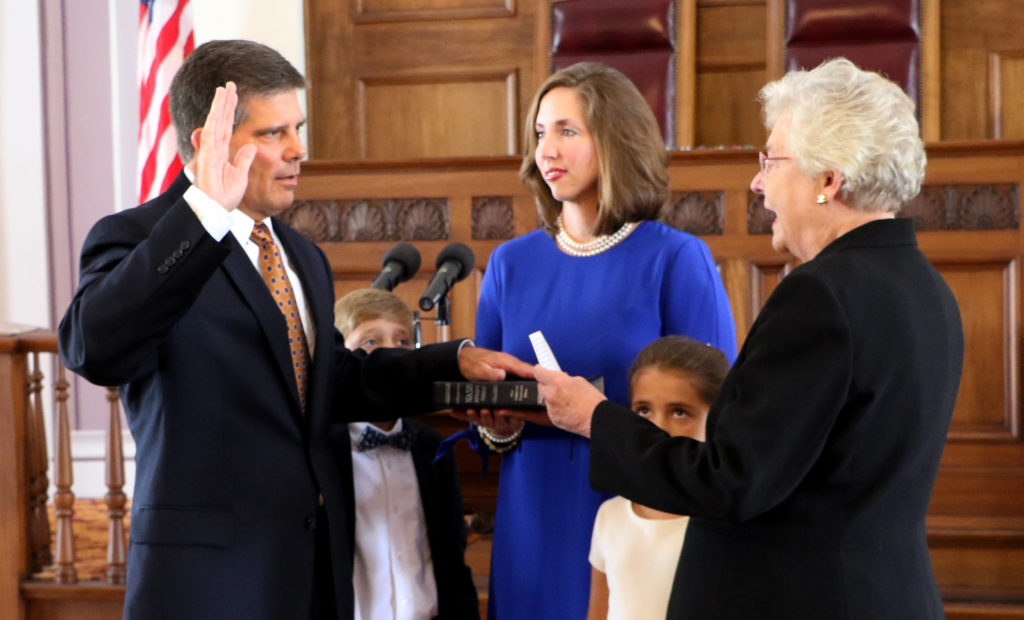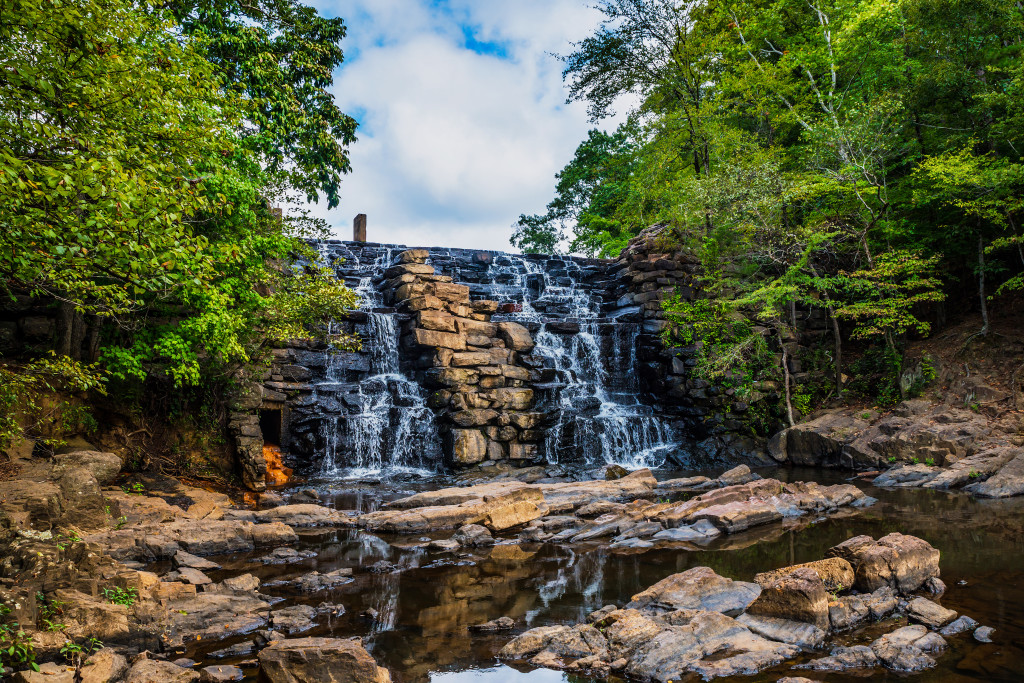Second case of deadly deer disease found in NW Alabama

A second case of a disease that’s deadly to deer has been found in Lauderdale County in northwest Alabama, a state agency said, prompting stricter rules about feeding wildlife. The Department of Conservation and Natural Resources said Monday it was banning baiting and supplemental feeding practices in Lauderdale and Colbert counties in an attempt to slow the spread of chronic wasting disease, which was first found in the state in January. The initial detection prompted testing measures, and the agency said samples were taken from 966 white-tailed deer killed in the two counties during the hunting season. One additional case of the illness was detected, and the state said that was enough to impose additional rules. The disease, which affects the behavior of deer because of microscopic changes in the brain, previously was detected in neighboring Tennessee and Mississippi in 2018. A deer can carry the disease for years without symptoms, and in latter stages, it may cause listlessness, lowering of the head, weight loss, walking in patterns, and unresponsiveness. Republished with the permission of the Associated Press.
Kay Ivey elevates two acting cabinet agency heads to permanent roles at ALEA, Conservation Dept.

Governor Kay Ivey on Friday announced she has elevated Hal Taylor and Chris Blankenship from their roles as acting cabinet agency heads to permanent roles. Taylor is the permanent Secretary of the Alabama Law Enforcement Agency (ALEA), and Blankenship is now the permanent Commissioner of the Department of Conservation and Natural Resources. “Since I appointed Chris Blankenship as Acting Conservation Commissioner and Hal Taylor as Acting ALEA Secretary, both men have proven beyond any doubt their abilities to effectively lead their respective agencies,” Ivey said in a news release. “I am proud to appoint both men to serve permanently in their particular roles.” Taylor had been acting secretary of ALEA since April 12, when he replaced Stan Stabler, a Bentley-era appointee who Ivey required to resign upon taking office. Prior to that he served as the Deputy Chief of Staff for the State Bureau of Investigations and ALEA Chief of Staff beginning in 2014. Before that, Taylor worked for the ABC Board going back to 1992. There he held multiple positions, including executive security and Assistant Director of the Enforcement Division. “Alabama’s law enforcement efforts must be handled with precision and integrity; Hal Taylor’s leadership ensures that happens. Hal is ably leading the men and women who serve our state as part of the Alabama Law Enforcement Agency, and I am thankful for his continued efforts,” Ivey commented. Blakenship was appointed as Acting Conservation Commissioner a little over two months ago on June 1. Before that, he served as the Deputy Commissioner and as Director of DCNR Marine Resources Division from 2011 to 2017. He has worked at the Department of Conservation and Natural Resources since 1994 when he was hired as a Conservation Enforcement Officer. “From effectively working to extend the Red Snapper season, to protecting Alabama’s natural resources, Chris Blankenship has made it clear he can lead the Department of Conservation and Natural Resources long-term,” Ivey added. “I am proud to have Chris as part of my team.” Both Blankenship and Taylor were officially sworn in on Friday morning in a private ceremony at the State Capitol in Montgomery.
Clay Scofield: Here’s my plan so future generations enjoy our state parks

Alabama’s State Parks are treasures that should be cherished and protected for future generations. Unfortunately, over the past few years, the parks system has suffered from multiple budget transfers to fund other General Fund agency shortfalls. I have a plan that will help to permanently fund our state parks and keep these God-given resources available for future generations. Our state’s General Fund has faced great challenges the past few years in terms of identifying adequate funding for state services. To fill those shortfalls, funds were transferred from the Department of Conservation and Natural Resources (DCNR) and the State Parks to fund other areas of government. Since 2012, $30 million has been transferred from the DCNR, and $15 million of this came directly from the parks system’s accounts. I have a plan to stop this unfair practice of taking money directly from our parks to fund other areas of government. I’ve proposed a constitutional amendment that would allow citizens to vote this November to protect Alabama State Parks’ funding forever. This constitutional amendment would prohibit any further transfers from the parks system’s funds to the state’s General Fund. The people of Alabama deserve the opportunity to have a voice about the future of their State Parks. Alabama State Parks have always operated on a slim budget and are unique. Unlike other state agencies, which receive appropriations from the state’s General Fund each year, state parks earn most of their own funds through guest fees. Unfortunately, millions of dollars made at the parks have been transferred to other state agencies over the past few years. Half of the more than 4.5 million visitors to Alabama State Parks come from out of state. The parks provide an economic boost of more than $375 million, a significant return on investment compared with most other state agencies. The Alabama State Parks System is also unique in the minimal support received from tax dollars. The parks generate more than $30 million from guest fees each year, which makes up 80 to 90 percent of the parks system’s annual budget. Other state parks systems in the Southeast, and across the country, receive considerable contributions from taxpayers. In Florida, Georgia and Mississippi, state parks’ revenues account for only about 65 percent of the total cost of operating the parks. In Tennessee, less than 45 percent of the operating costs of the parks are made at the parks; the rest comes from tax dollars. Other states heavily contribute to the success of their parks system with tax dollars. In Alabama, we take from the parks to fund other government agencies. The continued loss of this revenue has caused our parks system to begin implementing emergency contingency plans across the state. What does that mean? To cut costs, the system has been forced to close five parks. There are now seasonal closures for facilities at a number of other parks, and one park has transitioned to day-use only and made other operational changes to save money. In addition, it is likely the fees for services already offered at our State Parks will have to be increased in the near future. Again, this has not been caused by anything the State Parks are doing wrong or inefficiently. As a matter a fact, even after terrible natural disasters — such as Hurricane Ivan, which destroyed the state’s most profitable park on the Gulf Coast, or the tornadoes of 2012 that ripped through the campground at Guntersville — the parks’ staff and its supporters rallied to ensure the parks system continued to prosper even during these difficult times. Like many Alabamians, I have spent countless hours making memories in our State Parks, and I want to ensure that all families in the state can continue this legacy. I’ve always been amazed at the wide array of people who use and enjoy our parks. They are people of all interests and income levels – state residents and tourists alike. It’s time we let the people of Alabama decide if our parks will be a priority. I have no doubt the outcome will be an overwhelming “Yes.” Before this measure can reach the citizens on the ballot in November, the Legislature must first vote in favor of this amendment to protect our parks funding. Reach out to your local state representative and state senator and ask them to support this constitutional amendment. • • • Clay Scofield is a state senator from Guntersville, Alabama. He represents the 9th district. He represents Blount, DeKalb, Madison and Marshall counties.


